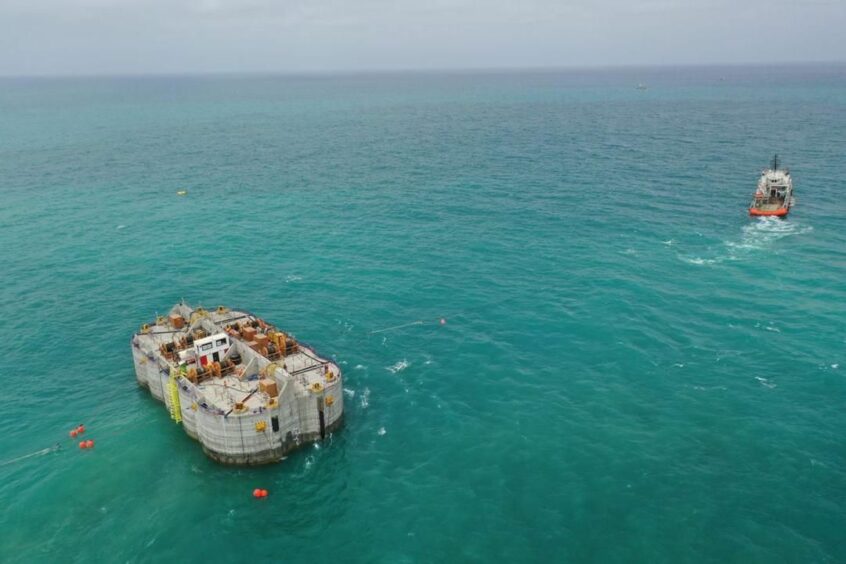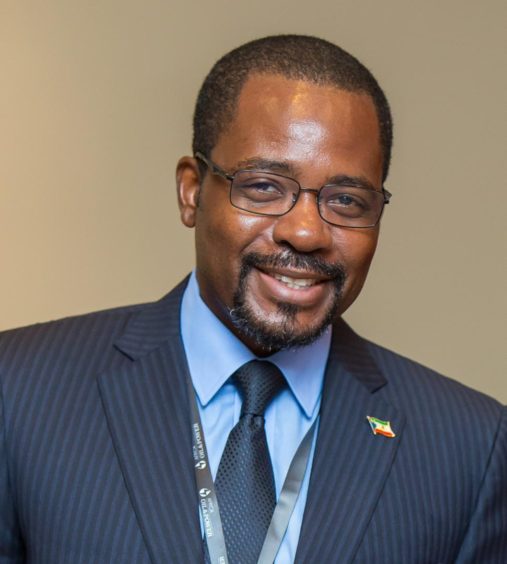
African ministers have put the case forward for gas, both as an export commodity and a domestic enabler, with an eye on the upcoming COP27.
Congolese Minister of Hydrocarbons Bruno Jean-Richard Itoua told attendees at MSGBC Oil, Gas and Power 2022 that energy demand would grow for the next 25 years.
“We cannot face this demand without gas. We need a minimal 40% of energy coming from fossil fuels over these 25 years. The question is not to stop producing oil or gas, this is the worst thing to do,” Itoua said, according to conference organiser Energy Capital & Power.
He went on to note support from the European Commission for gas. “There needs to be no more debates about gas. We need to stop wasting time discussing why gas is the solution. We need to start producing as much as we can.”
European support also received a mention from Equatorial Guinea Minister of Mines and Hydrocarbons Gabriel Mbaga Obiang Lima.
The European Union has allowed a role for gas in its plans, particularly given the pressure of moving away from Russian supplies.
While Europe does see a role for gas, the Commission has set out strict criteria for plants to continue operating. Furthermore, the body has pushed back against long-term LNG contracts.
Obiang Lima, also speaking in Senegal, argued there was a longer term role for gas, though.
“The most secure market for African producers is Africa. We need to be able to create a market. If we can export LNG to South Africa, Egypt and others, this will be long-term,” he said, in comments reported by Energy Capital & Power.
“To secure our future and reduce energy poverty, we need to create energy security.”
Human responsibility
International Gas Union secretary general Milton Catelin said access to “affordable, reliable, secure energy is a human right. But choosing the right energy mix in terms of human impact is a human responsibility.”
Catelin described gas as the “fastest available, flexible, efficient and sustainable long-term vehicle” for the energy transition. Sub-Saharan Africa’s gas resources offer “a very real opportunity for the continent to take control of its energy future”.
COP27, to be held in Egypt in November, will see a range of perspectives put forward on gas and the energy transition. COP26, in Glasgow last year, was notably anti-hydrocarbons, with oil execs avoiding the summit. Higher prices, and the invasion of Ukraine, may trigger a rethink.
The African Union in July said natural gas would have a “crucial role in expanding modern energy access”, among other options.
Senegal Minister of Petroleum and Energies Sophie Gladima told the MSGBC conference that COP26 had been a “death blow” for Africa. “But I am pleased to announce that it has not stopped us from progressing”, she said. “We must celebrate … and we must follow our own African narrative at COP27.”
The Egypt COP27 has been seen as notable in that it is likely to focus on developing countries and their needs. While there is likely to be pressure for a more pro-gas stance, it is not a done deal.

